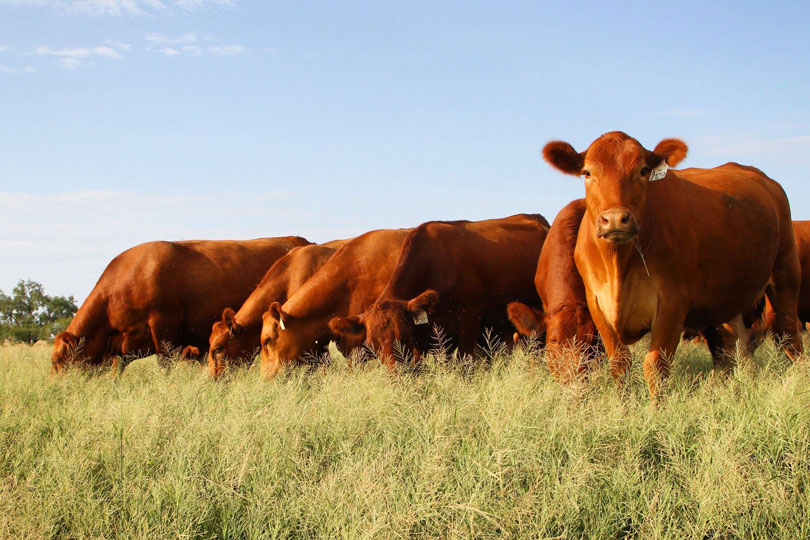By Justin Walker
Communications Specialist
The Texas Animal Health Commission (TAHC) is monitoring a number of animal health risks as summer weather continues to heat up.
In recent weeks, TAHC has identified numerous issues related to animal health, including heat stress, fever ticks, vesicular stomatitis, anthrax and more.
Rising temperatures, high humidity levels and a lack of wind can be a problem for livestock, as well as farmers and ranchers, Dr. Joe Paschal, a Texas A&M AgriLife Extension livestock specialist, said.
Lying down in the shade is one sign of potential heat stress for cattle, Paschal noted.
“As they become more stressed, they generally will seek out ponds and tanks they can wade into,” he said. “In more advanced stages, you can see them drooling from the mouth and nostrils and at this point, you know you have a serious problem.”
Ranchers should make sure livestock have plenty of cool water to drink, Paschal said. While they may wade through a pond, a clean water source is the best option.
Fever ticks remain an area of concern for Texas ranchers. TAHC livestock inspectors reported a case in Webb County in late April during a routine voluntary inspection. The premises where the cattle originated has been placed under quarantine.
Horses in Kinney County were confirmed to have vesicular stomatitis virus (VSV) on June 21. TAHC officials have quarantined the premises where the horses were located. The National Veterinary Services Laboratories confirmed the virus to be of the Indiana serotype (IN).
A second case of VSV-IN in Texas was announced on July 1 in Tom Green County. A third case, this one in New Mexico, was also confirmed by the U.S. Department of Agriculture’s Animal and Plant Health Inspection Service.
A Glasscock County quarter horse was confirmed to have Equine Herpes Myeloencephalopathy (EHM) on April 16 and is the second confirmed case in 2019.
Exotic livestock have also been impacted this year, as TAHC officials confirmed the first case of anthrax in a captive antelope in Uvalde County on June 19.
“The premises is located within the triangular area of Texas where anthrax is historically found in the soil,” Dr. Susan Rollo, state epidemiologist, said. “There is an effective anthrax vaccine available for use in susceptible livestock in high risk areas.”


I would like to share this to FB but the link above is broken.
What link is broken? I checked the link in the story and the URL above. Both worked for me.